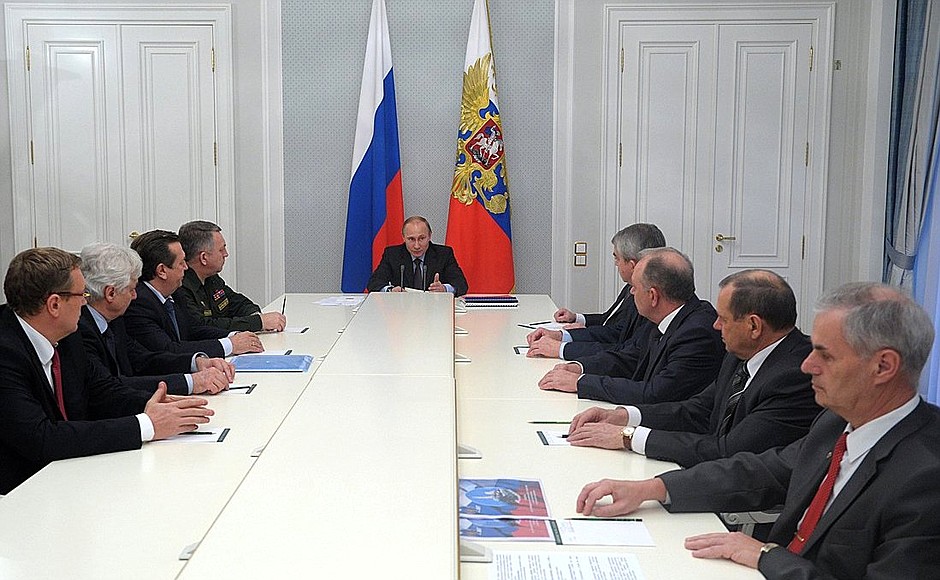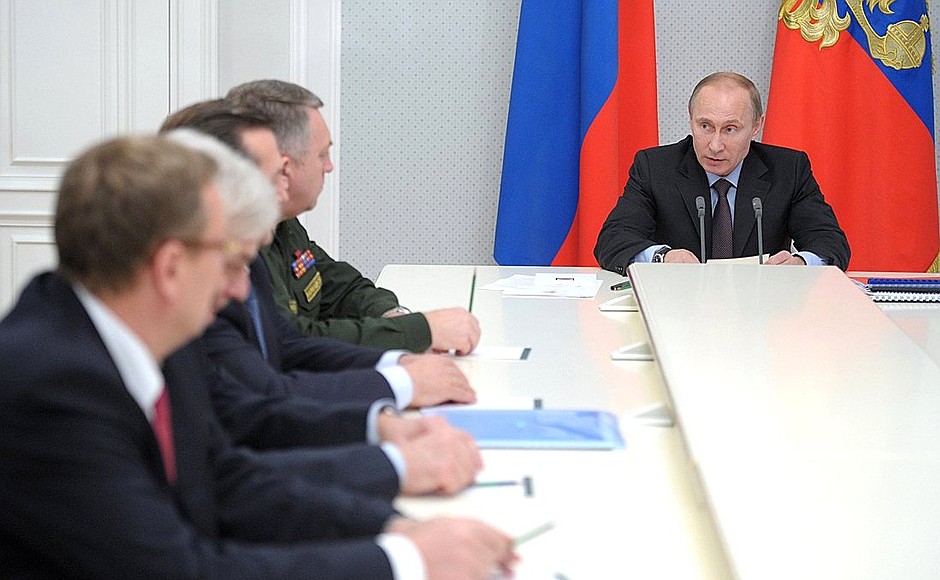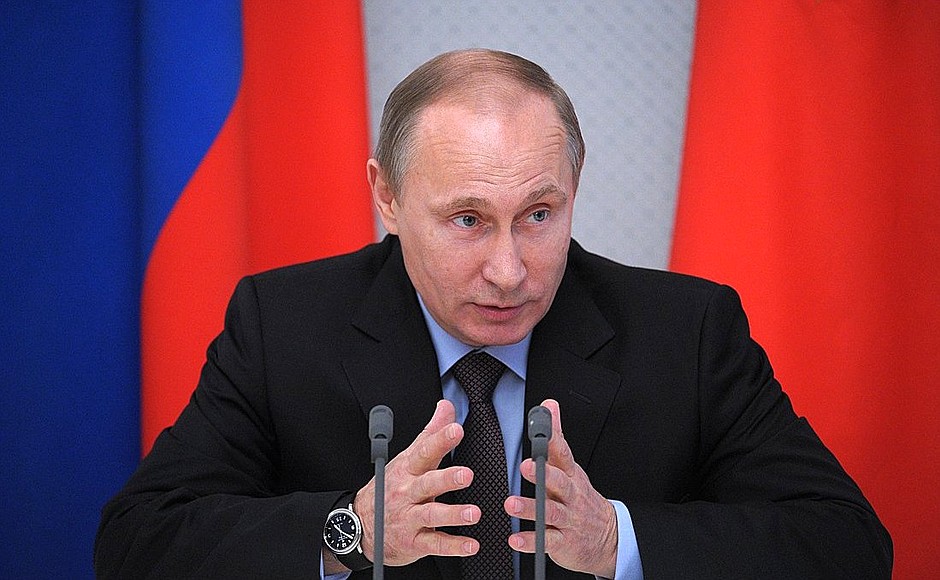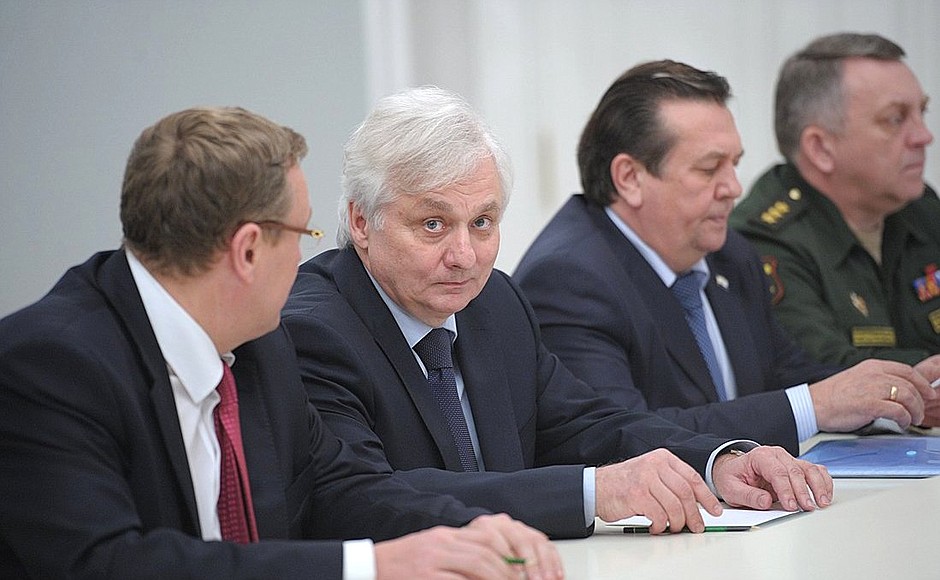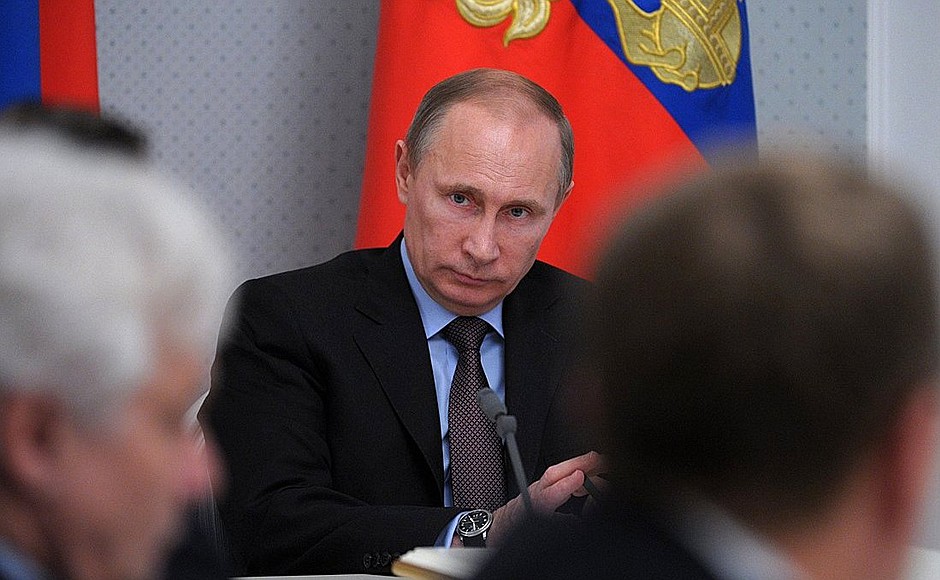President of Russia Vladimir Putin: Good afternoon, colleagues,
Today’s meeting is the first of a series of meetings we will hold on carrying out the state defence procurement orders. I propose that we take a broader look at the whole issue. Namely, I would like to hear during these meetings from the chief designers, the commanders of the relevant forces and branches, and the civilian players involved. On the civilian side, I would like to hear about what kinds of orders are being placed, how stable they are, the financing situation and how regular it is, and what kind of administrative support they have received. From the military people I would like to hear about how the manufacturers are handling the set tasks, is everything being done to deadline, and do the goods delivered meet the required quality standards?
Of course, I would like to hear from the military commanders, industrial specialists, and chief designers on the future steps you think we need to take, looking ahead in terms of modern warfare methods, our vision of likely developments here, and what we can do based on our current situation and financing possibilities of course. Maybe we need to make adjustments or bring deadlines forward or extend them. In short, I want us to get right into the issue, without haste, discuss it all calmly and professionally and make a substantive and in-depth examination.
This is the first in what will be a series of meetings. As you all know, we will discuss the strategic missile forces today. Let me say in their respect that they have been the foundation of our defence capability for 50 years now and it is they above all that guarantee our sovereignty.
A snap inspection of the strategic missile forces was carried out at the end of October this year. It showed that the forces are in a high state of preparedness. I remind you that two intercontinental ballistic missile launches were carried out from test grounds in different parts of the country, and the missiles successfully destroyed their designated targets on the Kamchatka Peninsula at the set time.
These missiles had already been on duty for more than 20 years now. The inspection showed that they are still totally reliable. At the same time however, we all know that life keeps moving on and we need to equip our forces with the latest models.
This is why we have already begun the process of the strategic missile forces’ planned transition to modern stationary and mobile missile systems. As you know, two missile forces’ regiments have already received new mobile missile systems this year. Next year, we plan to deliver a further 22 land-based intercontinental ballistic missiles to the strategic missile forces.
We will continue to develop the strategic nuclear forces’ main component in priority. I note again and have said many times already that our strategic missile forces must be not just powerful but also modern and capable of overcoming any missile defence system, today and in the future, taking into account missile defences’ future technological development. These are the remarks I wanted to begin with.
<…>
